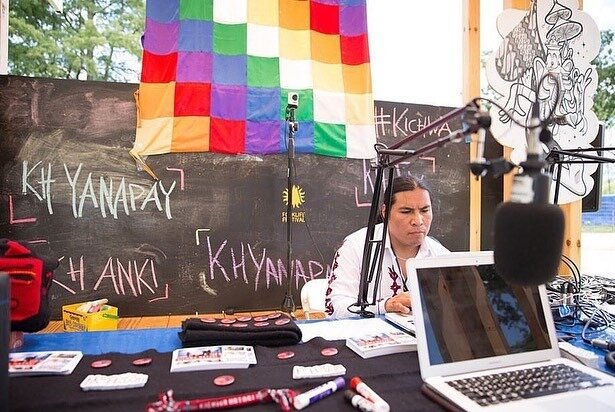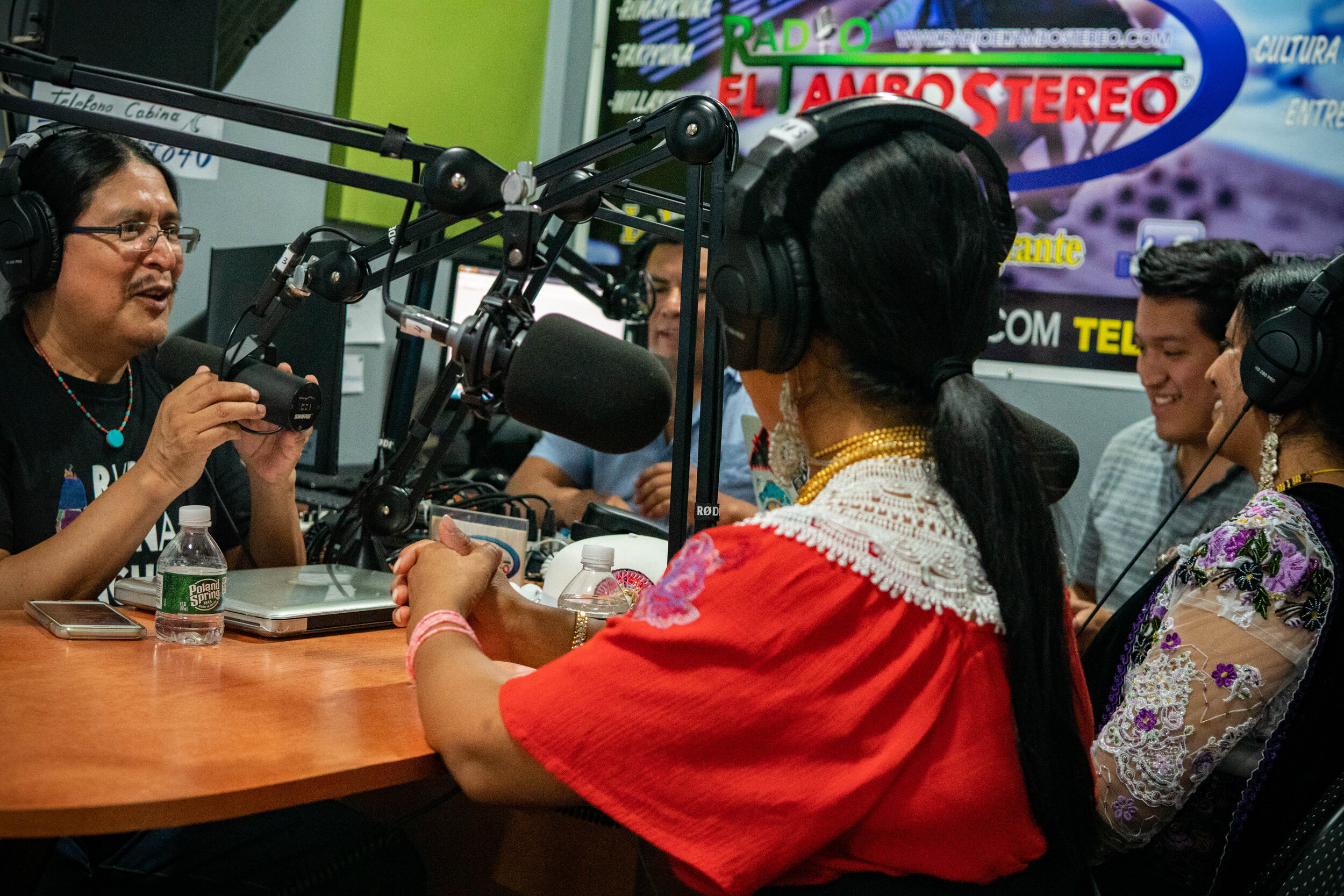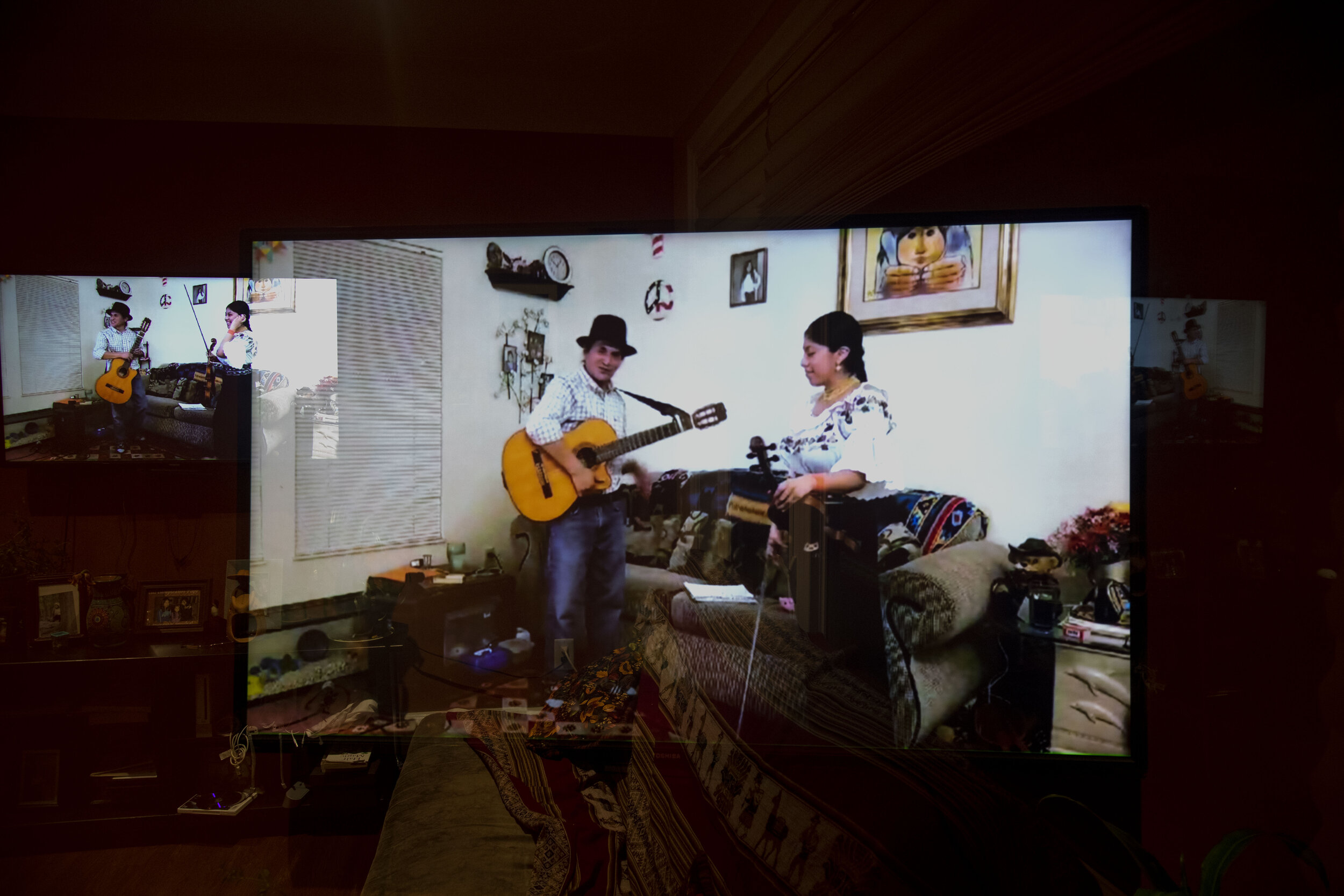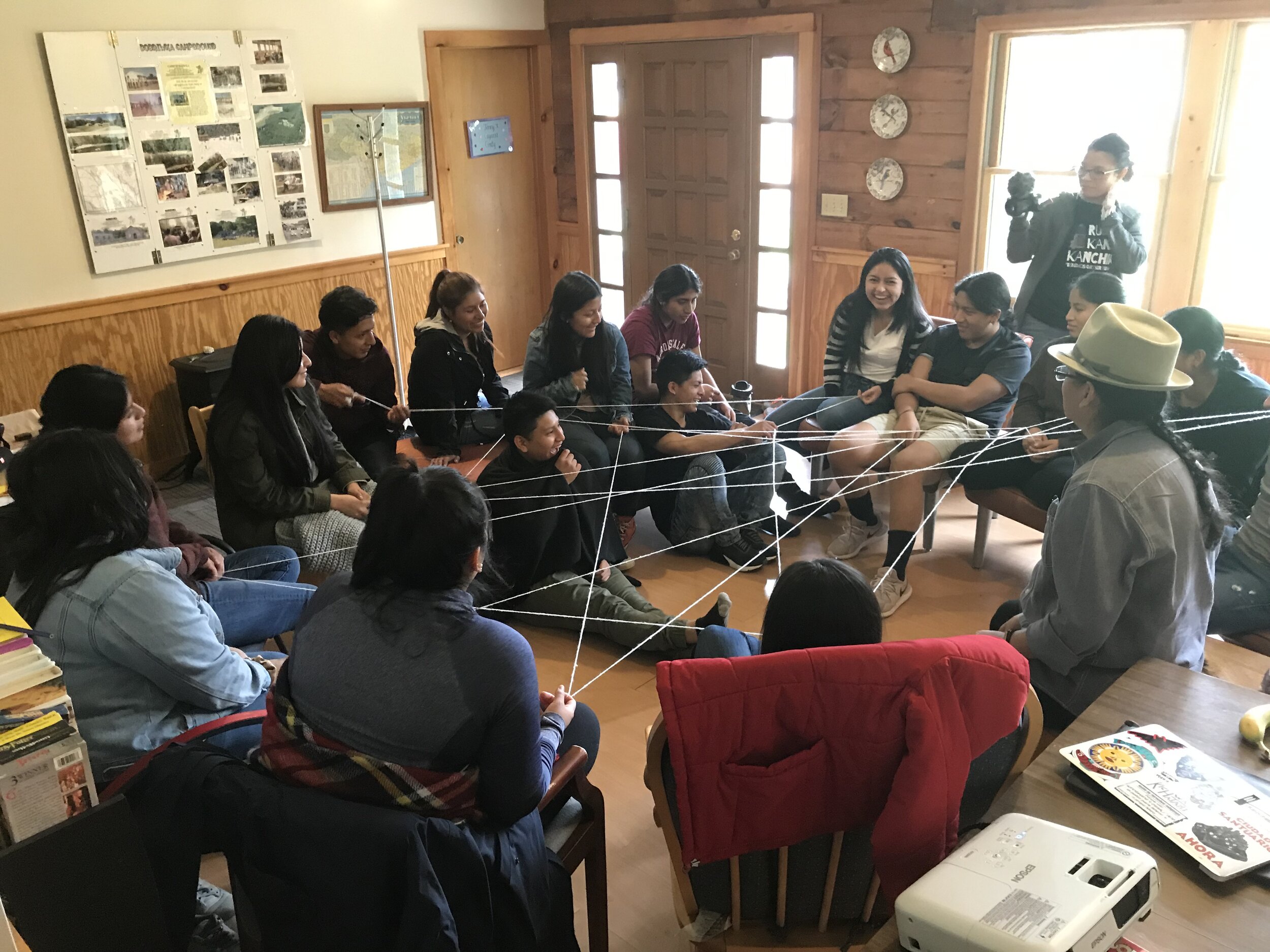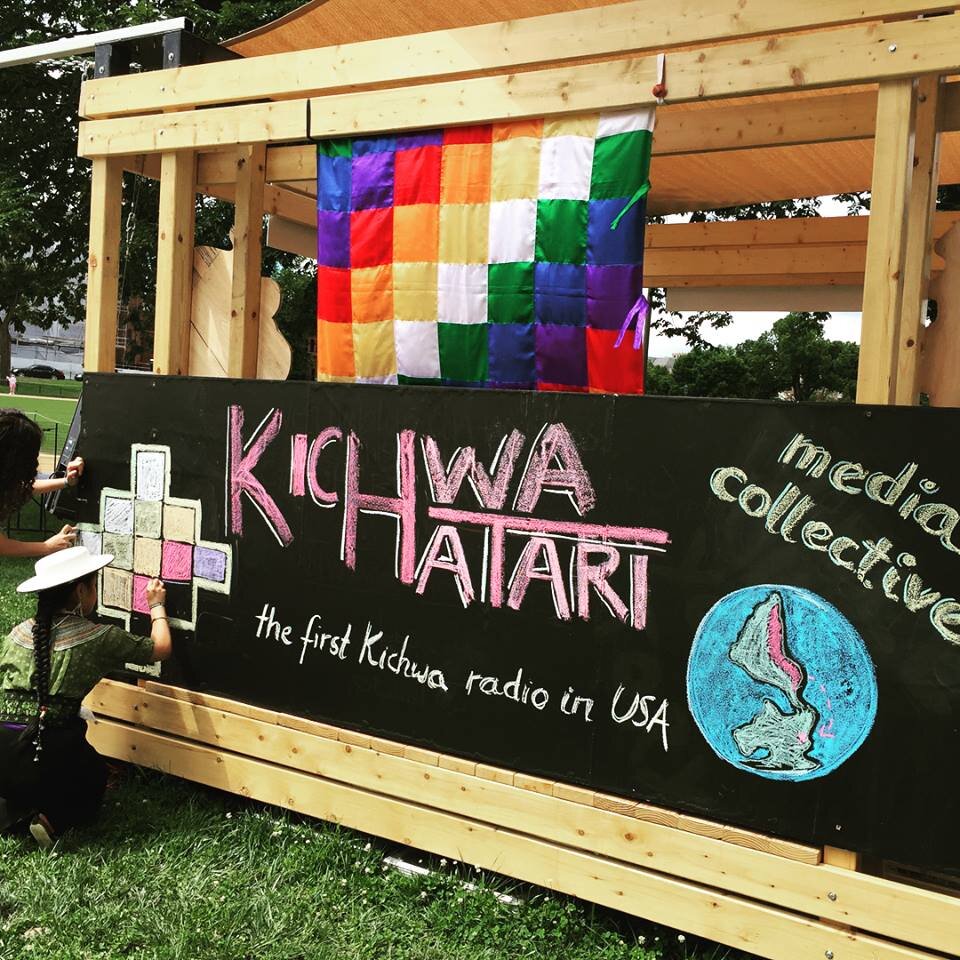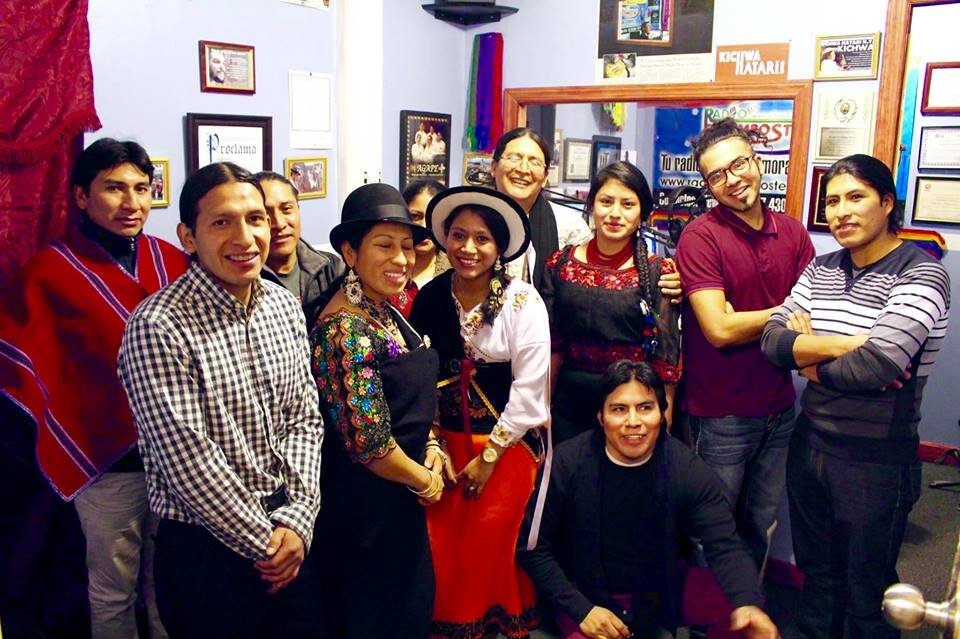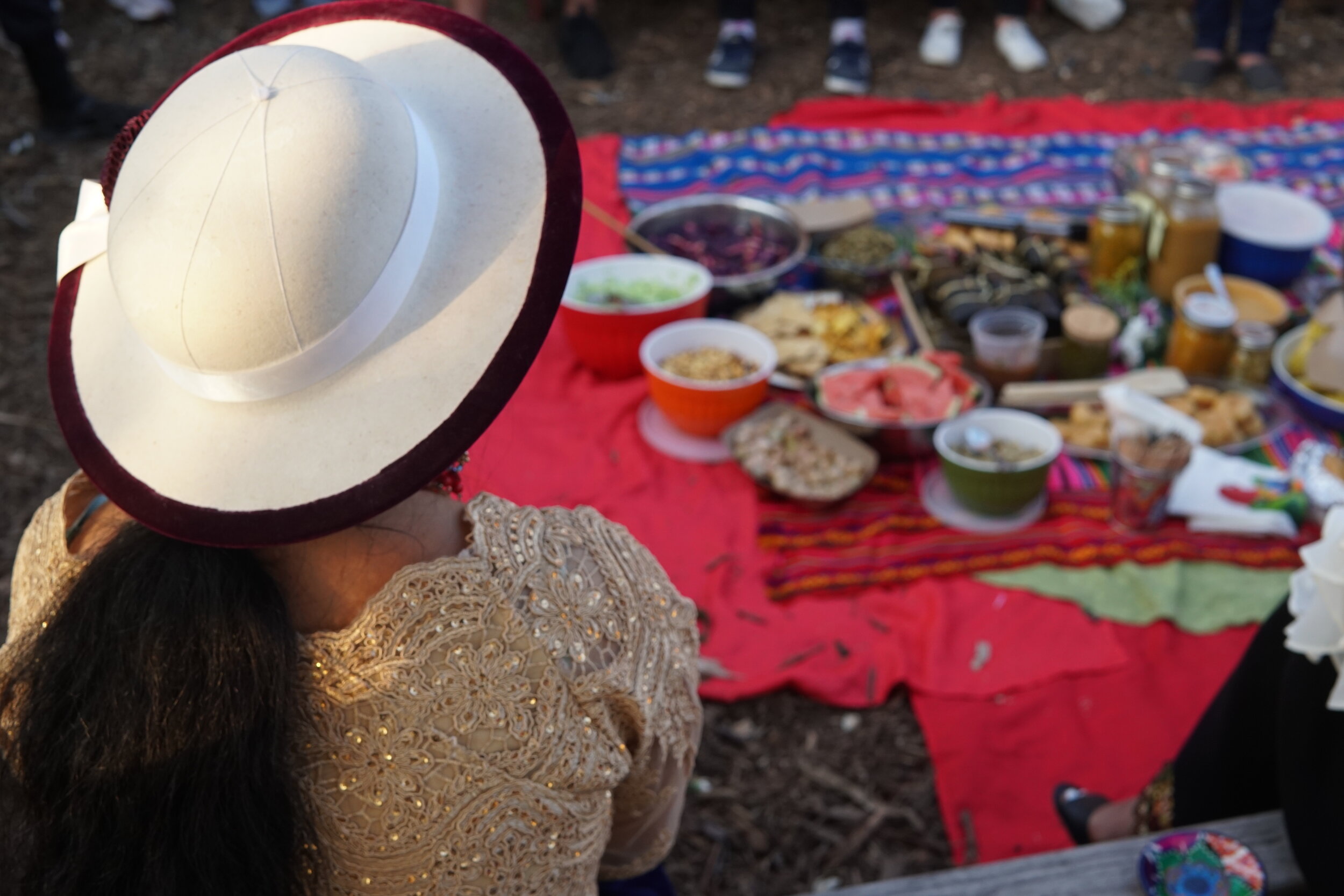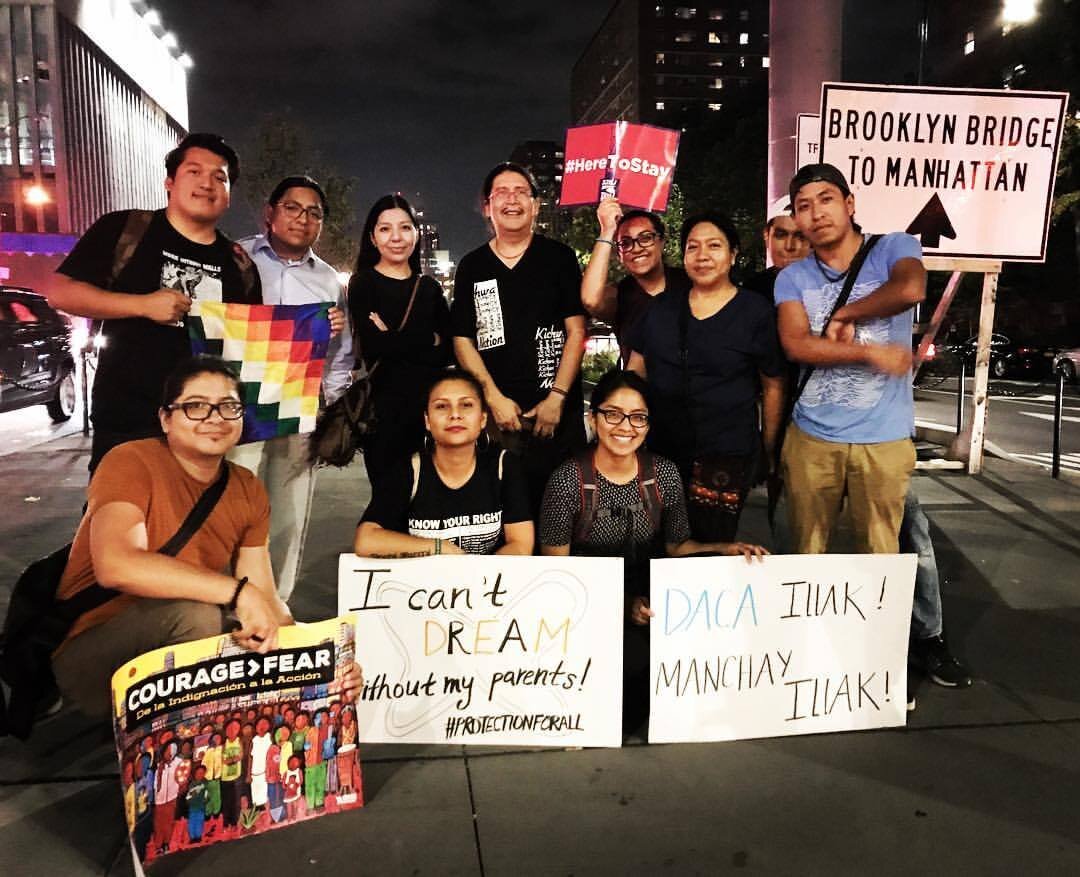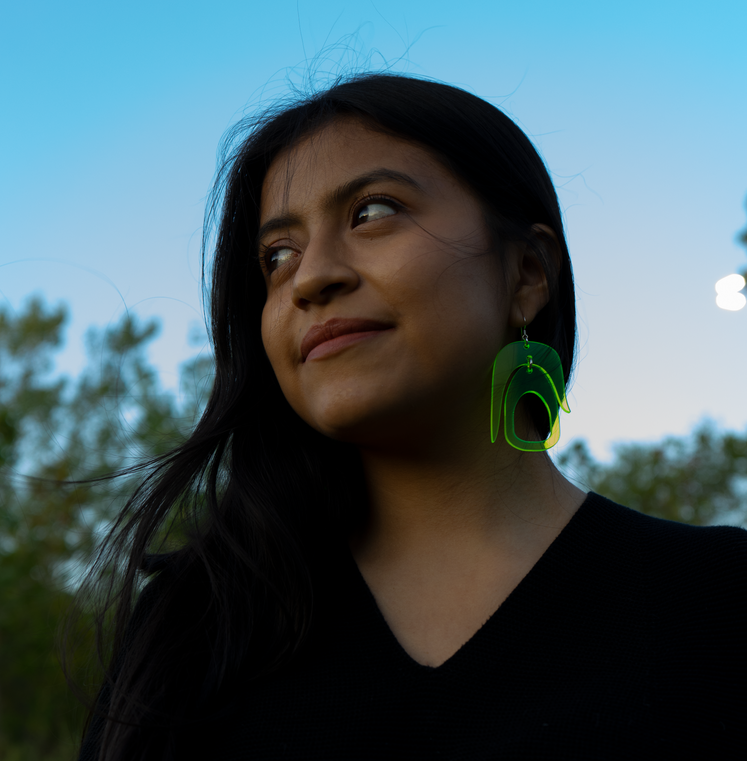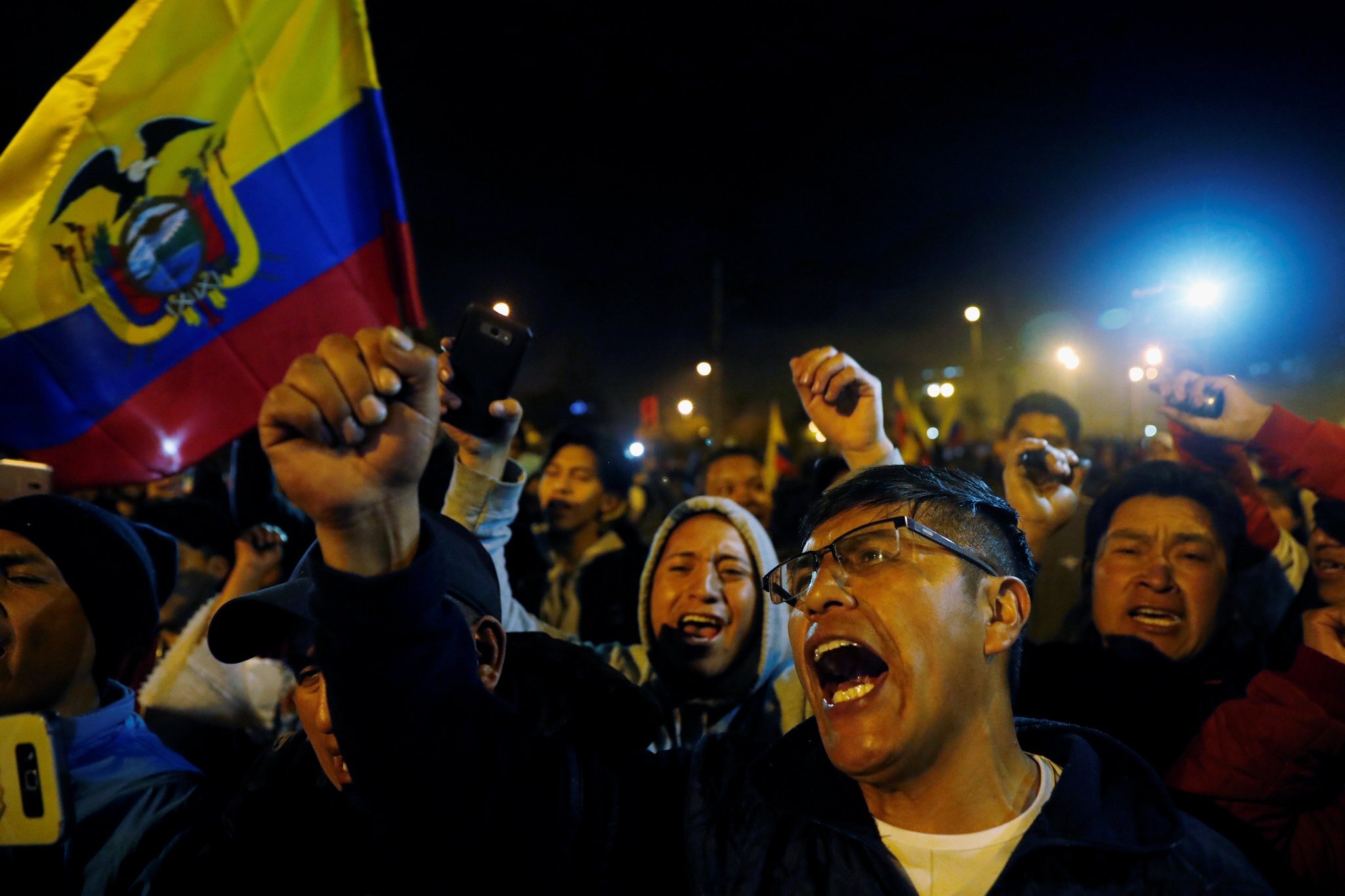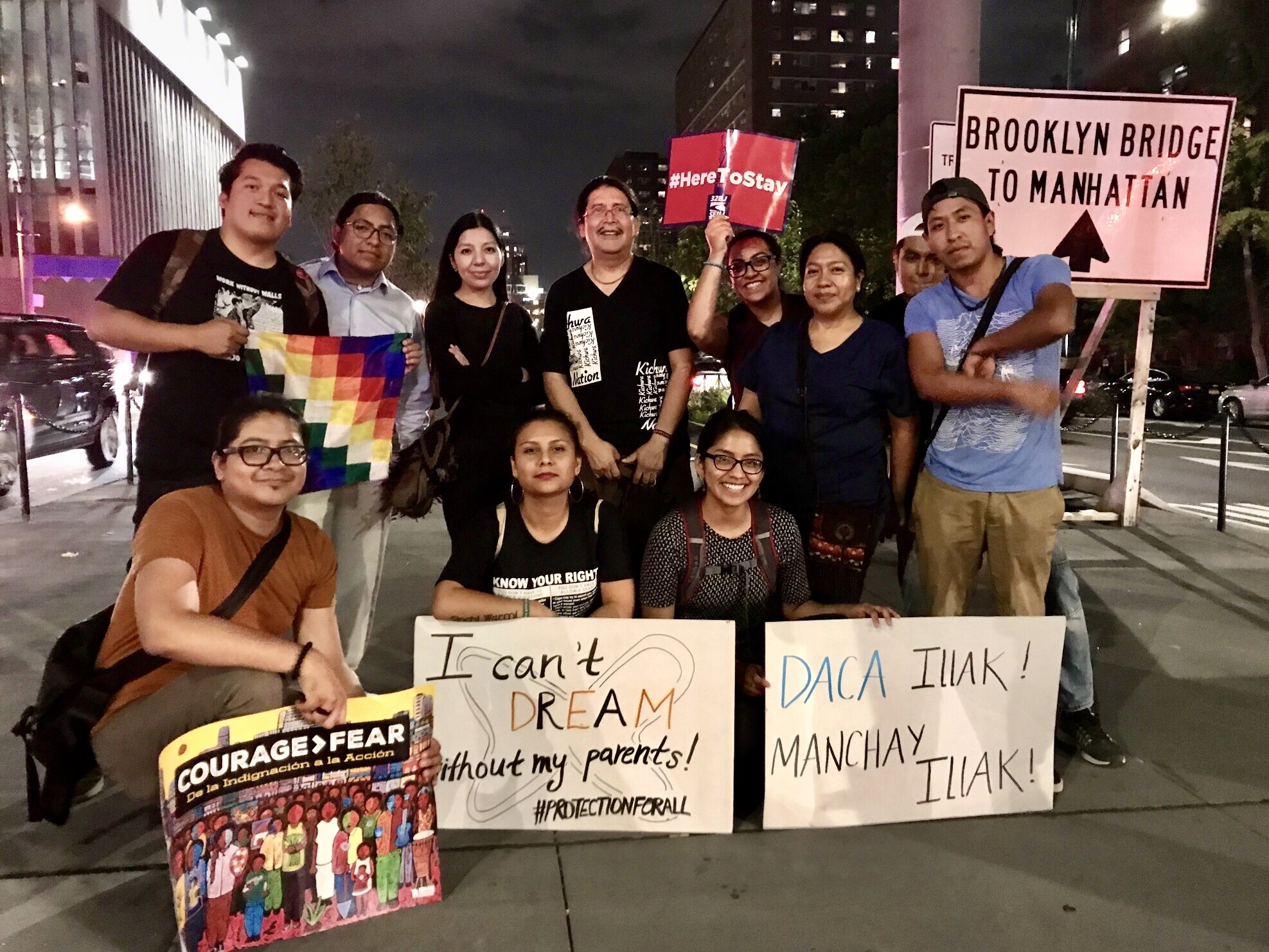
OUR STORY
Since the 1990s, indigenous communities from Ecuador have migrated to the United States, particularly to New York City and other urban centers, to escape an economic recession back home that has hit indigenous peoples the hardest. But despite their sizable population, Kichwas are often rendered invisible among Ecuadorians and the larger Latino population.
Since 2014, Kichwa Hatari is considered the first radio program in Kichwa in the U.S, aimed at reaching the Quechua/Kichwa population in the United States, particularly in New York. The program's founding rose from an awareness by its founders of the social and cultural issues confronted by Kichwa migrants in New York City: issues stemming from a lack of cultural sensitivity in institutions like courts, schools, and hospitals (e.g. lack of Kichwa interpreters). It was founded and is currently produced by Segundo J. Angamarca, Fabian Muenala, Charlie Uruchima.
Today, Kichwa Hatari is blending radio and community work into a one-of-a-kind project that is as much about revolutionizing radio airwaves as it is about cultural/linguistic empowerment and grassroots social organizing.
The Team
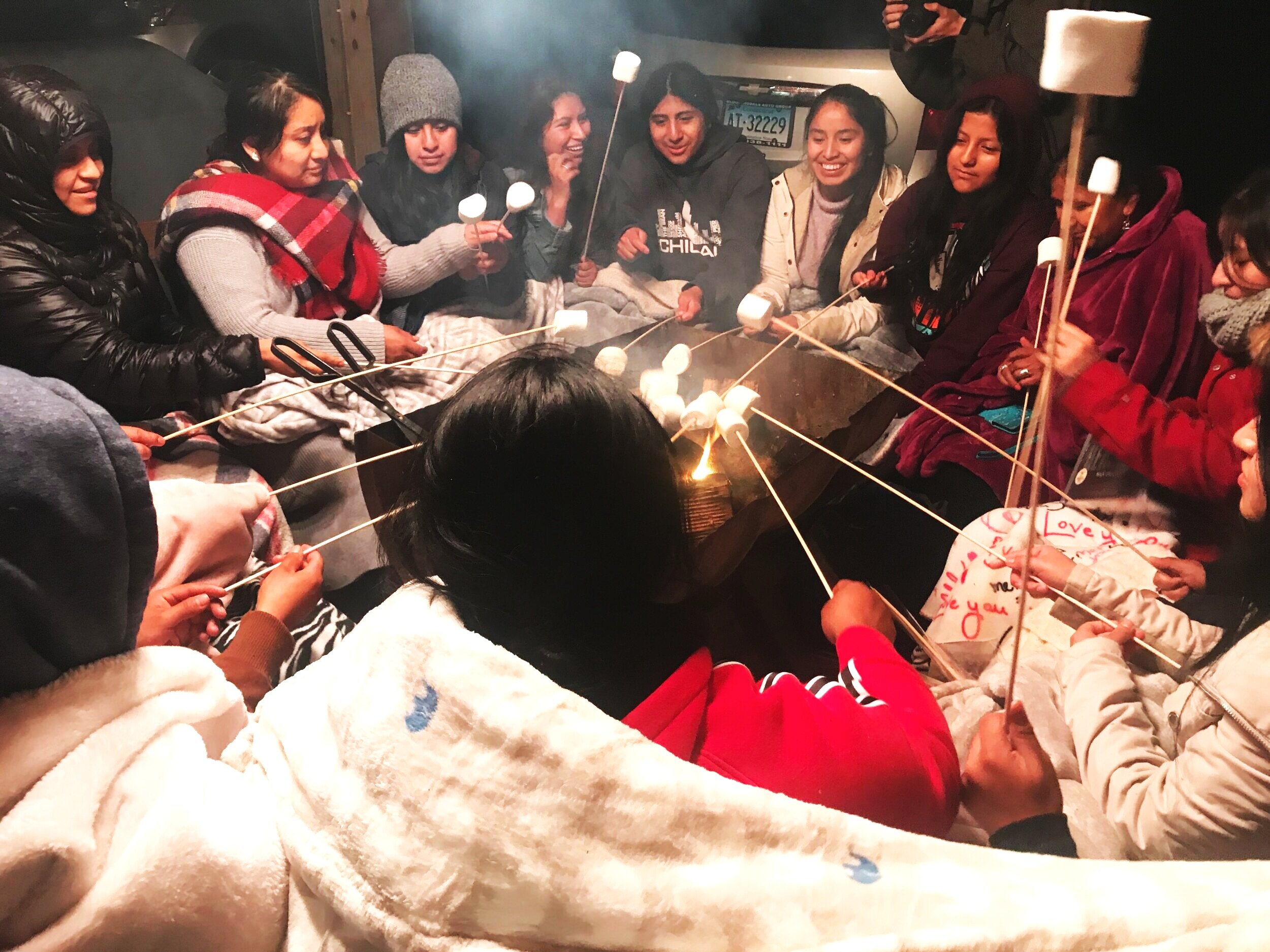
Nazka Serrano is a Kichwa warmi who currently resides in the Midwest area. As a community organizer and storykeeper Nazkas’ work is heavily rooted in community healing as liberation, by honoring the diverse processes of indigenous communities in the diaspora. She is currently working in collaboration with Kichwa Hatari, co-hosting radio segments and using different media platforms to uplift and center the innovation across indigenous generations as we continue taking ownership of our collective visions and stories. In the summer of 2020 Nazka helped organize “Wambrakuna”, the first Kichwa youth led virtual panel across Turtle Island (Us-Canada) and Ecuador. A co-created space that highlighted and (re) connected the current lived experiences and realities of wambras, youth in the diaspora. Her most recent work, a written piece “Kaipimikanchik-Estamos Aquí”, is featured in this years “Mini Latinx Anthology” 2021, a work in collaboration with The LatinxProject at NYU.
Charlie Uruchima was born and raised in New York City (Lenape Territory) of Kichwa-Ecuadorian descent. Blending his passions for Quechua, community organizing, and digital media, in July 2014, Charlie co-founded Kichwa Hatari. Since 2012, Charlie has worked extensively with grassroots organizations in New York City, like Democracy Now, NICE, and Brandworkers. In 2015, Charlie helped found May Sumak, a 3-day traveling film showcase that until today has taken place in more than eight cities throughout the US and Ecuador. Since 2016, Charlie has also consulted for the Smithsonian National Museum of the American Indian (NMAI) and the Center for Latin American and Caribbean Studies (CLACS) at NYU. Currently, Charlie works at the New York Committee for Occupational Safety and Health (NYCOSH) coordinating a city-wide workers’ rights program, where he recently helped organize and launch the New York City Workers’ Bill of Rights in five Latin American indigenous languages, including Kichwa.
Tatiana Sarango is an indigenous Kichwa woman born in Saraguro, Ecuador. She is an advocate with the Kichwa Saraguro community in the New York Tri-State Area, working to maintain and continue practicing the cultural traditions of her community. In 2019, Tatiana helped organize the first Kichwa Youth Camp in the U.S, “Tanday Pacha,” a gathering that brought together Kichwa youth living in the U.S. to enrich their identity as indigenous peoples and migrants living across the country. Today, she is one of the Co-Hosts of the radio show, Kichwa Hatari, and currently resides in the Midwest area working as a research specialist for the “All of Us” project at the University of Wisconsin School of Medicine and Public Health. Tatiana hopes to achieve representation of indigenous experiences within the research community to aid in the healing of trust between the medical/research community and vulnerable communities that historically have been excluded in this area.
Segundo J. Angamarca is the founder and principal radio personality of Radio El Tambo Stereo, the home station channel of Kichwa Hatari. Growing up in Cañar, Ecuador, Segundo had a passion for radio, working for numerous radio stations including La Voz de Ingapirca in Cañar, Ecuador. Years later Segundo brought his talents to New York and in 2011 founded his own station, Radio El Tambo Stereo, from his own house with the purpose of reaching the Latino population in New York, particularly Ecuadorians. With this same community in mind, in the Summer of 2015 Segundo embarked on a team project with Kichwa Hatari NY, a project (the first of its kind) that promises to become an important point of encounter for the Kichwa community living in New York City. You can listen to Segundo and the rest of Kichwa Hatari team every Friday from 6-8pm on Radio El Tambo Stereo
Fabian Muenala Pineda is a Kichwa from Otavalo, Ecuador. As social, cultural and artistic activist Fabian has dedicated a majority of his life to advocating for the revitalization of Kichwa as a language, culture and way of living for indigenous communities in Ecuador. These roles have included co-producing didactic bilingual intercultural educational materials for the CONAIE and CIEI in Ecuador, and later also becoming teacher and field trainer for bilingual educators nationwide. Today, Fabian collaborates and leads on many cultural projects from New York, including co-founding Kichwa Nation and Co-Producing Kichwa Hatari.
Emily Uruchima is a Kichwa educator and storyteller born and raised in Lenapehoking territory (New York City). Emily’s practice is centered around body positivity, restorative healing, and food sovereignty, all in dialogue with ancestral healing practices of her elders and ancestors. As an environmental youth educator and activist, Emily seeks to illuminate Indigenous knowledge of food systems in worships she facilitates across NYC. In addition, Emily participates in dialogues with Black and Indigenous communities about intergenerational legacies of disparities, historical trauma, and ongoing systemic barriers to body liberation. In her own self-exploration, as an urban warmi, Emily writes poetry and prose, as a continuous practice of acceptance, compassion, and love for herself. Knitting extensive threads of her past, present and future, Emily seeks to reclaim her Brown Kichwa body as hers, and hers only.
Adina Farinango is a Kichwa artist, visual storyteller, illustrator, and graphic designer based in Lenapehoking (New York City). She uses Indigenous art as a form of resistance, healing, and self-expression, exploring themes of identity, culture, and diaspora. Through her work, Adina focuses on reclaiming spaces and celebrating Kichwa futurisms, drawing inspiration from the resilience and strength of Indigenous matriarchs across generations. Adina is passionate about Indigenizing spaces, creating work that uplifts Kichwa narratives while fostering connections across territories and cultures.
Eli Farinango is a Kichwa artist and visual storyteller, born in Kichwa territory (Quito, Ecuador) and raised in Algonquin territory (Ottawa, Canada). Through her practice she explores the vastness and beauty of the healing journey while making intentional space to reclaim personal and ancestral memory through image-making and collaborative processes. Her documentary work focuses on cultural identity, ancestral healing practices, and the connection between body/territory.
Elena Sarango is originally from Saraguro, Loja, Ecuador. She is currently a co-host of Kichwa Hatari’s radio program. Through the program she has led segments about current affairs and motivational support. Elena was the first woman to be elected President of the organization SARUSA (Saraguros Residentes en los Estados Unidos) in 2015. Today, Elena remains very active with the collective and with the Ecuadorian community in Orange County, NY where she engages with initiatives in support of leadership development for immigrants and community empowerment.
Shawna Pancarita Farinango, Kichwa Digital Creator based in Haudenosaunee Territory (Hamilton, Ontario) and Kichwa Territory (Otavalo, Ecuador). Her work is inspired by the resistance of her community, the beauty of la Pachamama and the strong and powerful Warmis that surround her. Through her artwork, she tries to deconstruct the narrative that has been imposed on her community by showcasing her lived experiences of what it means to live in a brown Indigenous body. She uses illustrating and graphic design as a way to explore the complexities of beauty standards, society norms, and misrepresentation of Warmis in her community. Her art has been a way to express herself, to take up space, and go against stereotypes of indigenous folx. It is part of her self reclamation process, finding her power, and most importantly strengthening her identity.
collaborators:
Renzo Moyano
Daisy Alvarez
Ximena Sabogal
Press
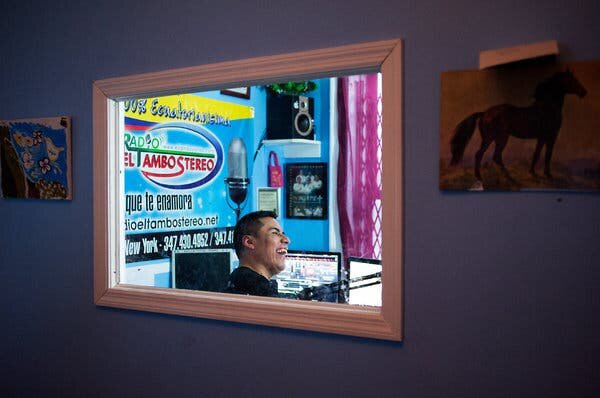
“By Using Language Rooted in Andes, Internet Show’s Hosts Hope to Save It” (New York Times)
By Kirk Semple Aug. 15, 2014
Segundo J. Angamarca, half-hidden in a thicket of electronic equipment on a recent Friday evening, put on his headphones and glanced around the room, a makeshift Internet radio station in his apartment in the Bronx.
“We’re all set, no?” he asked in Spanish. He punched a few buttons on a console and, leaning into a live microphone, began speaking...
Meet the Young Ecuadorians Behind the First Kichwa-Language Radio Show in the US (Remezcla)
Not far from South Bronx corner bodegas, street vendors, and the Yankee Stadium, stands an unremarkable tan apartment building. You wouldn’t know it from the outside, but in its weathered basement, is a radio studio and haven for New York City’s indigenous Ecuadorian Kichwas, a community of an estimated 10,000.
In Ecuador and Beyond, Indigenous Groups Are Fighting to Be Seen
We spoke to a New York-based activist about the movement for indigenous rights throughout the Americas.
Over the past few years, Indigenous Peoples’ Day has been adopted in a number of states and cities in the United States as a justice-oriented answer to Columbus Day — a way to focus on Indigenous people and acknowledge the impact of Christopher Columbus’s voyages to the Americas on the Native people who were already here. But in addition to being a corrective, the day also highlights the Indigenous groups still preserving their cultures in the United States and abroad…

